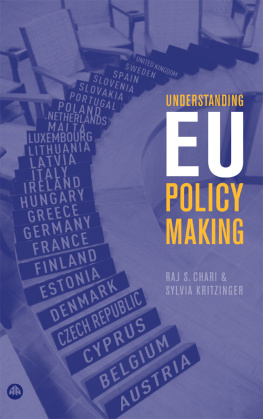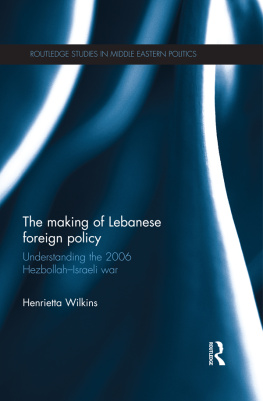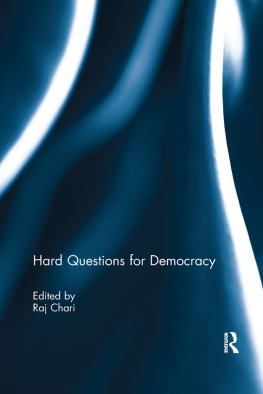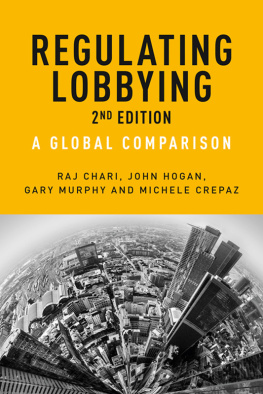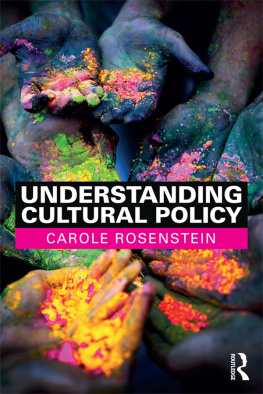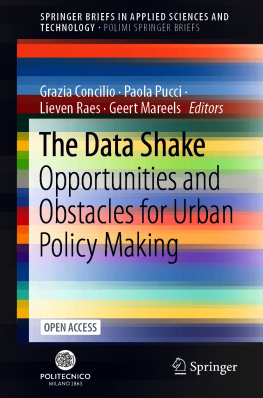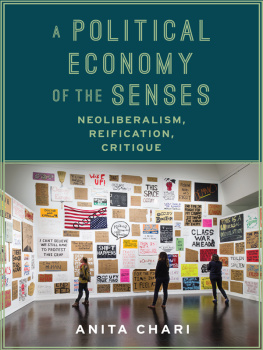Raj S. Chari - Understanding EU Policy Making
Here you can read online Raj S. Chari - Understanding EU Policy Making full text of the book (entire story) in english for free. Download pdf and epub, get meaning, cover and reviews about this ebook. year: 2006, publisher: Pluto Press, genre: Politics. Description of the work, (preface) as well as reviews are available. Best literature library LitArk.com created for fans of good reading and offers a wide selection of genres:
Romance novel
Science fiction
Adventure
Detective
Science
History
Home and family
Prose
Art
Politics
Computer
Non-fiction
Religion
Business
Children
Humor
Choose a favorite category and find really read worthwhile books. Enjoy immersion in the world of imagination, feel the emotions of the characters or learn something new for yourself, make an fascinating discovery.
- Book:Understanding EU Policy Making
- Author:
- Publisher:Pluto Press
- Genre:
- Year:2006
- Rating:5 / 5
- Favourites:Add to favourites
- Your mark:
- 100
- 1
- 2
- 3
- 4
- 5
Understanding EU Policy Making: summary, description and annotation
We offer to read an annotation, description, summary or preface (depends on what the author of the book "Understanding EU Policy Making" wrote himself). If you haven't found the necessary information about the book — write in the comments, we will try to find it.
Understanding EU Policy Making — read online for free the complete book (whole text) full work
Below is the text of the book, divided by pages. System saving the place of the last page read, allows you to conveniently read the book "Understanding EU Policy Making" online for free, without having to search again every time where you left off. Put a bookmark, and you can go to the page where you finished reading at any time.
Font size:
Interval:
Bookmark:
Making

345 Archway Road, London N6 5AA
and 839 Greene Street, Ann Arbor, MI 48106
A catalogue record for this book is available from the British Library
ISBN 0 7453 1970 X paperback
ISBN 978 1 7837 1957 0 ePub
ISBN 978 1 7837 1958 7 Kindle
Curran Publishing Services, Norwich, England
Printed and bound in the European Union by
Antony Rowe Ltd, Chippenham and Eastbourne, England
ACP | African, Caribbean and Pacific |
AMUE | Association for the Monetary Union of Europe |
BDI | Bundesverband der Deutschen Industrie (German employers association) |
CAP | Common Agricultural Policy |
CCME | Churches Commission for Migrants in Europe |
CCP | Common Commercial Policy |
CEC | Conference of European Churches |
CEEP | Confdration Europenne des Employers Publics |
CEOE | Confederacin Espaola de Organizaciones Empresariales (Spanish Employers Association) |
CEPOL | European Police College |
CFSP | Common Foreign and Security Policy |
CNPF | Conseil National du Patronat Francais (French employers association) |
COGECA | General Committee for Agricultural Cooperation |
COPA | Committee of Agricultural Organizations |
COREPER | Committee of Permanent Representatives |
CPE | Coordination Paysanne |
DEC | Dominant Economic Class |
DG | Directorate General |
EAGGF | European Agriculture Guidance and Guarantee Fund |
ECB | European Central Bank |
ECJ | European Court of Justice |
ECOFIN | Economic and Financial Affairs Council |
ECOSOC | Committee on Employment and Social Affairs of the EP |
ECRE | European Council of Refugees and Exiles |
ECSC | European Coal and Steel Community |
EEA | European Economic Association |
EEB | European Environment Bureau |
EEC | European Economic Community |
ELDR | Liberal Democrats |
EMP | Euro-Mediterranean Partnership |
EMS | European Monetary System |
EMU | Economic and Monetary Union |
EP | European Parliament |
EPC | European Political Cooperation |
Font size:
Interval:
Bookmark:
Similar books «Understanding EU Policy Making»
Look at similar books to Understanding EU Policy Making. We have selected literature similar in name and meaning in the hope of providing readers with more options to find new, interesting, not yet read works.
Discussion, reviews of the book Understanding EU Policy Making and just readers' own opinions. Leave your comments, write what you think about the work, its meaning or the main characters. Specify what exactly you liked and what you didn't like, and why you think so.

